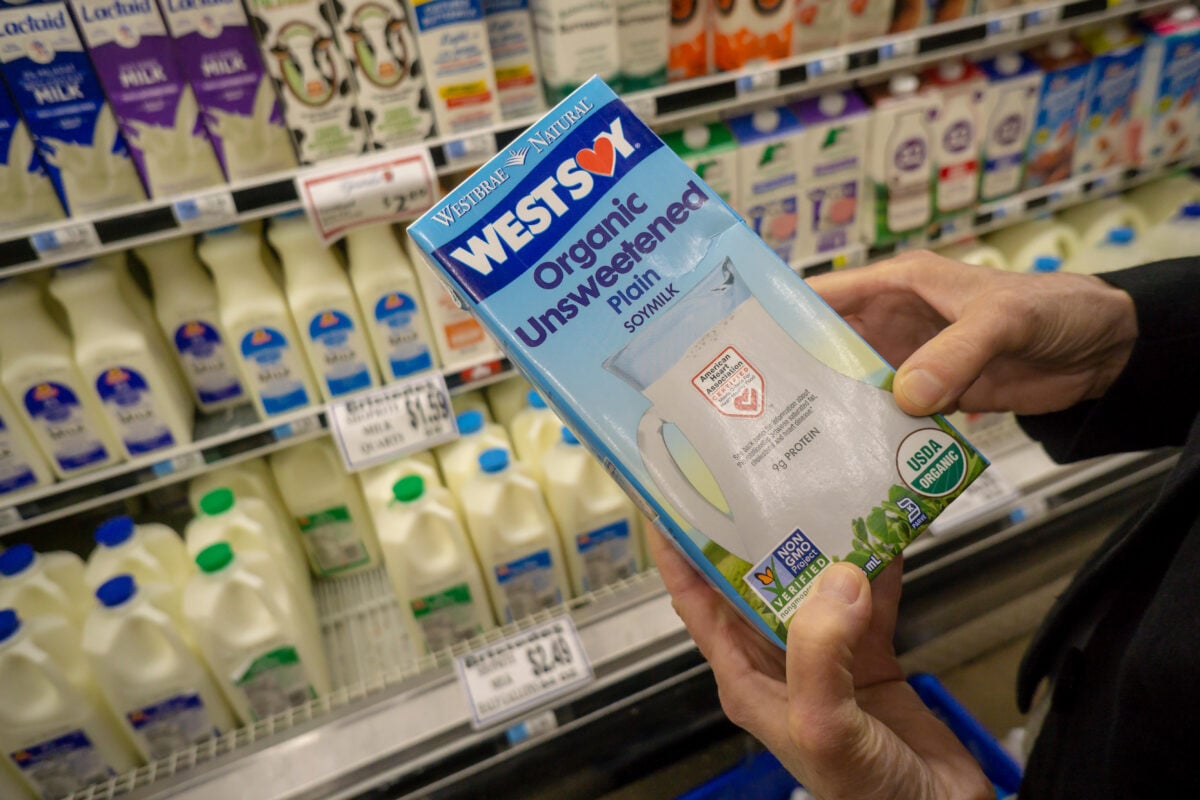Drinking soy milk instead of cow’s milk reduces blood pressure, cholesterol, and inflammation, even if sweetened, a new study has found.
Read more: Califia Farms Launches ‘Complete’ Kid-Friendly Vegan Milk
Researchers at the University of Toronto analyzed 17 trials in which soy milk was substituted for cow’s milk. They looked at the effects of sweetened and unsweetened soy milk on 19 cardiometabolic health markers. There were no negative effects on any of the markers, though for some there was a clear improvement for study participants who switched to soy milk. The study found “moderate reductions” in blood pressure, and “small important reductions” in “bad” LDL cholesterol and inflammation.
The trials ranged from four to 16 weeks in length. “This time frame may be sufficient for observing certain effects, but other outcomes may require a longer period to manifest changes,” the authors wrote. But the meta-analysis benefits from being a “comprehensive” synthesis of available evidence directly comparing soy milk to cow’s milk.
Ultra-processed label misleading

According to the study, the findings suggest it’s “misleading” to “classify fortified soymilk as an ultra-processed food to be avoided while classifying cow’s milk as a minimally processed food to be encouraged.” Soy milk is classified as an ultra-processed food under the NOVA classification system, endorsed by the World Health Organization (WHO).
Read more: Is Oat Milk Bad For You? The Truth Behind The Claims
Sweetened soy milk also fails to meet the US Food and Drug Administration proposed definition of “healthy,” says the study. This is despite it usually containing around 60 percent less sugar than cow’s milk.
The authors recommend that soy milk should no longer be called ultra-processed. They also suggest it should receive government funding, as cow’s milk does, to be added to public nutrition programs such as in schools.
Soy milk has comparable protein content to cow’s milk and contains more vitamins B1 and B6, folic acid, and vitamins E and D2 (when fortified with D2). It also contains more magnesium, manganese, iron, and copper than cow’s milk.
Read more: Is Whole Milk Having A Comeback? Nutritionist Warns Against Its ‘Health Benefits’






